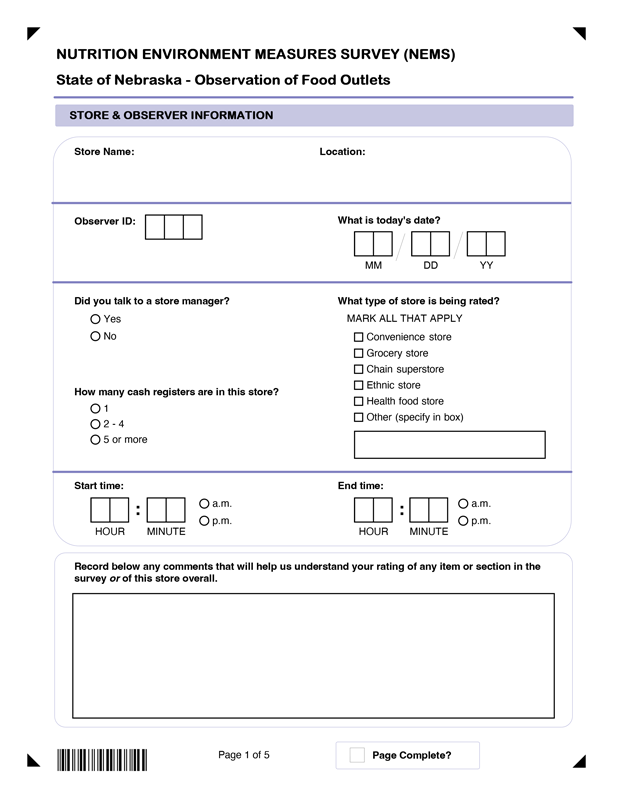Healthy Food Retail

Healthy Food Retail is increasing the availability and affordability of nutritionally dense foods in places where people purchase foods. People access a majority of their food from food retail locations, which include grocery stores, convenience stores and farmer’s markets. Healthy food access at these retail locations enables people to make healthier food choices which contributes nutrient-rich diets and decreases chronic disease risk.
Healthy Food Retail is one part in comprehensive environmental changes that enable healthier lifestyles. Health is not simply an individuals’ responsibility, but rather the whole community’s, including food retail locations. Creating and supporting healthy food environments is an important component of public health work. Specifically, retail stores, both full-service grocery stores and convenience stores have a role in creating healthy food environments that support health and well-being. Nearly 30 million Americans live without access to affordable, healthy foods, according to the United States Department of Agriculture. Particularly impacted individuals are those living in lower-income areas, communities of color and rural communities. These individuals typically have greater availability of food from convenience stores and fast food restaurants, which lack the nutritionally dense foods that provide health benefits and higher quality of life. Healthy food retail works. Studies have shown that if stores provide access to affordable healthy foods, people are healthier. Studies have shown an increase in fruit and vegetable consumption if they have access to grocery stores that carry them. Similarly, research shows that healthy food access at local full-service grocery stores lowers overweight and obesity.
Toolkit
Nebraska Extension has developed a Healthy Food Retail toolkit designed to support food retailers in their efforts to increase availability and affordability of healthy foods. The toolkit consists of marketing materials for increasing the appeal and sales of healthy food items stocked in the store. The more appealing a food, the more likely it is to sell, increasing profit and reducing food waste. The toolkit provides this marketing to increase sales of these five food groups:
Sell Healthy
In addition to the marketing materials provided in the toolkit, The Food Trust, a nonprofit organization working across the country to ensure delicious, nutritious food for all, offers guides to “Sell Healthy”. The Sell Healthy Guide and the Grocer’s Guide to Sell Healthy offer strategies to sell healthy food while increasing sales and profits. These strategies consist of marketing, store design, pricing and offering nutrition education. Partner with the local Extension Office to provide nutrition education, including information, samples, and live recipe demonstrations.
Self-Assessment

NebNEMS Assessment
NEMS is a healthy retail store assessment. NEMS stands for Nutrition Environment Measurement Survey can help determine store strengths and areas of opportunity for improving affordability and accessibility of nutritious foods. A high score on the NEMS is a 5 out of 5; one point is available for each of the five food groups. Points are based on availability, appeal, price and marketing of the food groups.
NebNEMS: the Nebraska-specific NEMS is called NebNEMS is coordinated by Nebraska Extension. Accurately assessing a store using the NebNEMS requires a basic understanding of how to use the tool. Click the link below to be directed to a short survey which includes a 20-minute training on how to use NebNEMS. A downloadable PDF of the NEMS assessment is provided at the end of the training. Use this downloadable NEMS to complete a self-assessment and then contact your local Extension office for support in increasing your NEMS score and overall healthy retail environment.
Resources
- The Food Trust
- Sell Healthy Guide by The Food Trust
- Grocery’s Guide to Sell Healthy by The Food Trust
- Centers for Disease Control Healthy Environments Page
- Healthier Food Retail Action Guide by the National Center for Chronic Disease Prevention and Health Promotion
- Latest research on healthy eating, including food retail